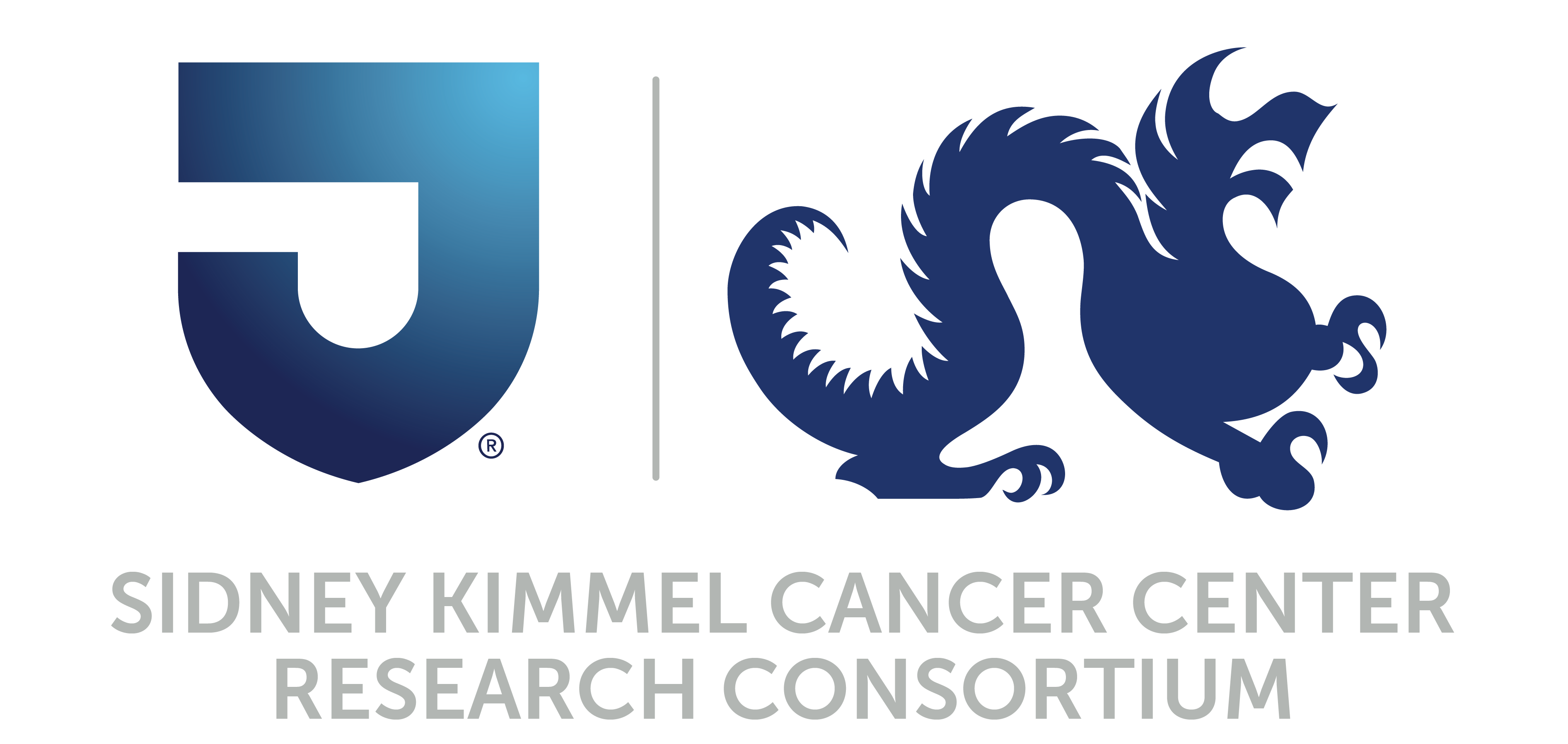
New Research Looks at Role of Metabolic Environment in Aggressiveness of Hodgkin Lymphoma and Diffuse Large B-Cell Lymphoma

Two studies focusing on the role of the metabolic profiles of Hodgkin Lymphoma and Diffuse Large B Cell Lymphoma have been accepted for publication in Seminars in Oncology.
Two studies focusing on the role of the metabolic profiles of Hodgkin Lymphoma and Diffuse Large B Cell Lymphoma have been accepted for publication in Seminars in Oncology. These studies have been led by Ubaldo Martinez-Outschoorn, MD, Associate Professor in the Department of Medical Oncology at the Sidney Kimmel Cancer Research Center at Thomas Jefferson University.
Both studies utilized tissue samples from subjects with lymphoma to assess how nutrients (also called catabolites) were being generated and utilized in tumors and how this may affect cancer aggressiveness. “For the past century, oncology metabolism research has focused on cancer cells in isolation but that is not how cancer cells thrive since they are always surrounded by non-cancer cells” explains Dr. Martinez-Outschoorn. “The ability to study patient samples and assess the metabolic profile of the different cell types provides us with a more complete picture of the relationship between different cells in tumors. We looked at several markers of metabolism in the different types of cells in these tumors and found that cancer cells change the surrounding non-cancer cells. This metabolic reprogramming may allow cancer cells to obtain energy from these non-cancer cells. We have to think of tumors as metabolic ecosystems where non-cancer cells may support the cancer cells from a nutritional standpoint”
About the Studies
Hodgkin Lymphoma: A Complex Metabolic Ecosystem with Glycolytic Reprogramming of the Tumor Microenvironment The case-control study of tissue samples from 22 patients with classical Hodgkin Lymphoma (cHL) found that aggressive cHL exhibits features of metabolic heterogeneity with high levels of markers of mitochondrial metabolism in the cancer cells, and high glycolysis in tumor-associated macrophages (TAMs), which are recruited to tumors and are among the most common non-cancer cells in these tumors.
Researchers utilized patient’s samples to evaluate the expression of three metabolic markers in both cancer cells and TAMs. They found that two types of metabolic profiles exist with cancer cells having the highest levels of transporters used for nutrient uptake and mitochondrial metabolism. Conversely, macrophages had a pattern consistent with release of nutrients and low mitochondrial metabolism. Patient’s who had more pronounced metabolic differences between cancer and non-cancer cells had worse outcomes.
“Metabolic characterization of Hodgkin Lymphoma could be used as part of the patient assessment to more precisely predict an individual’s prognosis and tailor treatment accordingly but as a first step additional clinical studies need to confirm that these metabolic features are associated with outcomes.,” said Dr. Martinez-Outschoorn. Mitochondrial and glycolytic metabolic compartmentalization in Diffuse Large B Cell Lymphoma Using a similar approach to the Hodgkin Lymphoma study, the study team found that multi-compartment metabolism also exists in Diffuse Large B Cell Lymphoma (DLBCL), the most common aggressive form of lymphoma. Tissue samples from 33 patients with DLBCL, as well as 18 control samples using non-neoplastic lymph nodes were reviewed “We found that in DLBCL, two types of metabolism exist,” explains Dr. Martinez-Outschoorn. “A subgroup of non-cancer cells, had markers of glucose breakdown into lactate, while cancer cells had markers of lactate utilization.”
The authors conclude, “The differential expression of lactate exporters and importers support the hypothesis that cancer cells are metabolically linked to adjacent non-cancer cells. Our findings open new avenues of research that could involve disruption of cancer and non-cancer cell metabolic links to determine if this can be a new treatment approach in DLBCL.”
About Sidney Kimmel Cancer Center
A leading center for practice-changing discovery and comprehensive cancer treatment, the Sidney Kimmel Cancer Center of the Thomas Jefferson University has been appointed as a Designated Center by the National Cancer Institute since 1996, and is one of only 69 institutions in the nation to hold this prestigious recognition. SKCC is committed to delivering the most advanced, personalized cancer care, made possible through their scientific discoveries and breakthroughs in detecting and treating cancer. SKCC provides access to advanced clinical trials and novel treatment strategies throughout the Greater Delaware Valley, realized through our integral sites in Center City Philadelphia, Abington, Aria, and the comprehensive, Sidney Kimmel Cancer Center Network. Routinely ranked amongst the top hospitals for cancer care in the United States by US News & World Report, the multi-disciplinary teams at SKCC bring together specialists for treatment planning, which results in some of the highest survival rates in the nation.
For additional information Hodgkin Lymphoma: http://www.sciencedirect.com/science/article/pii/S0093775417301343 Mitochondrial and glycolytic metabolic compartmentalization in Diffuse Large B Cell Lymphoma http://www.sciencedirect.com/science/article/pii/S0093775417301355




































